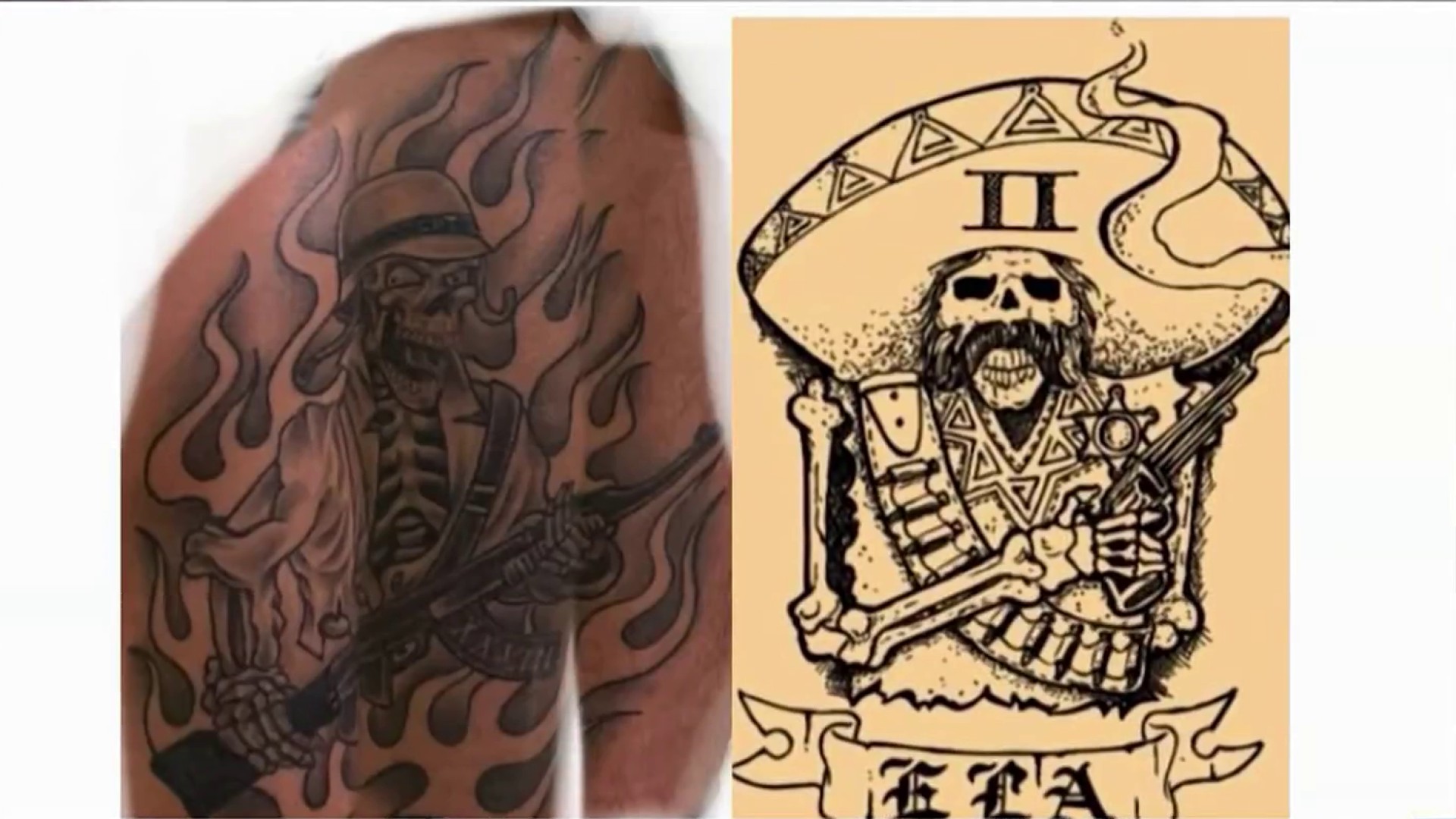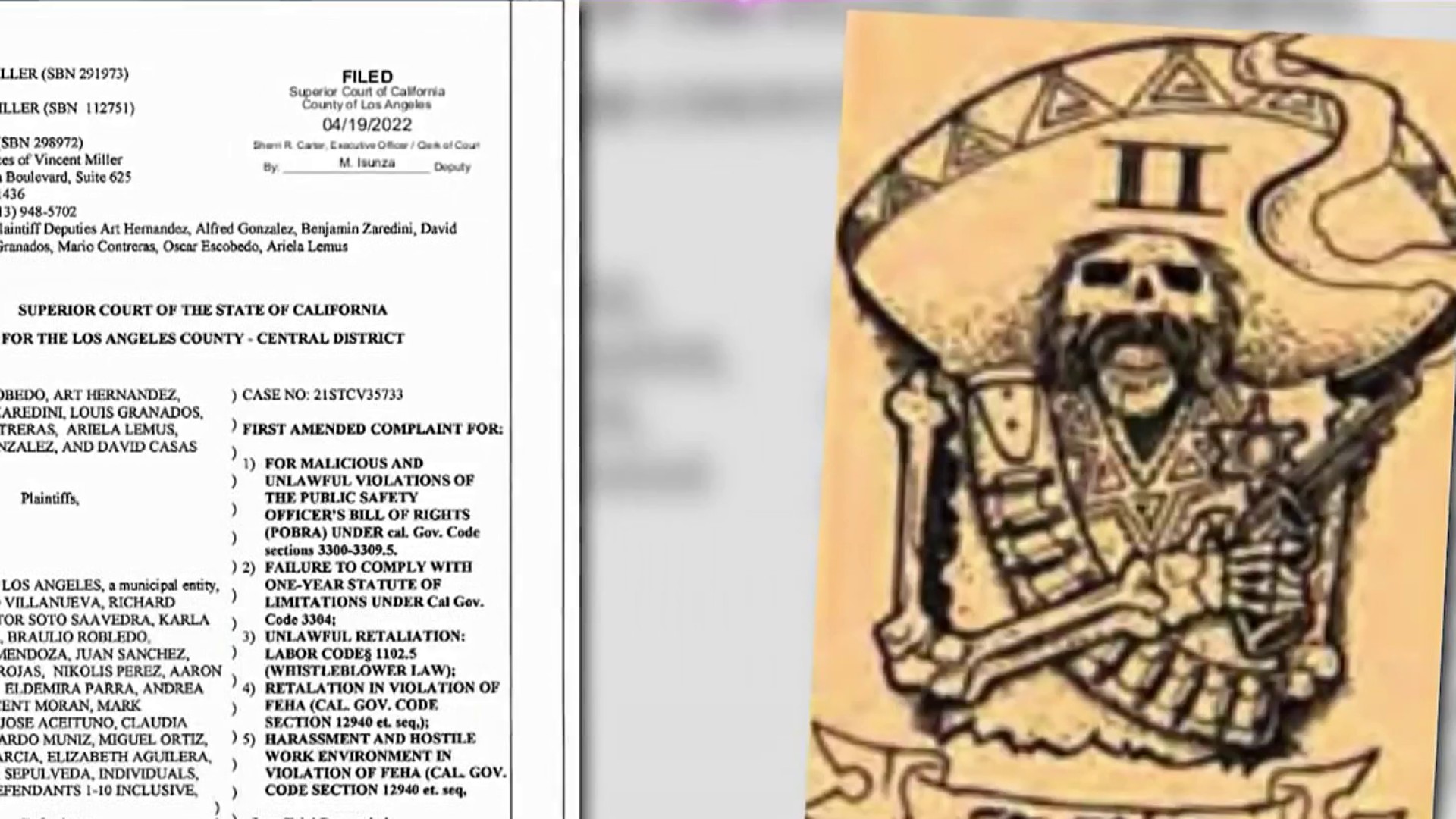The union that represents most Los Angeles County deputy sheriffs asked a judge Thursday to stop the county's Office of Inspector General from attempting to interview dozens of deputies suspected of belonging to law enforcement gangs.
Attorneys representing the Association of Los Angeles Deputy Sheriffs, or ALADS, told LA Superior Court Judge James C. Chalfant that the county should be enjoined from enforcing an order that deputies appear for the interviews, where the Inspector General also demanded the suspect deputies show their arms and legs in order to see if they have gang tattoos.
"There's no way to unring these bells," ALADS attorney Jacob A. Kalinski said in court, and urged the judge to intervene now, before deputies could be subjected to potential discipline for either refusing to participate in the interviews or for admitting gang membership.
In May, the Inspector General sent letters to more than 30 deputies suspected of being members of either the Banditos group at the East LA Sheriff's Station, or the Executioners group at the Compton Sheriff's Station.
Get top local stories in Southern California delivered to you every morning. >Sign up for NBC LA's News Headlines newsletter.
Sheriff Robert Luna later ordered deputies to comply with the Inspector General's letter.
ALADS lawyers said in court papers that initial interview request and the sheriff's order could put suspect deputies in legal jeopardy -- no matter what action those deputies took in response, and, at risk of losing their jobs, either through the sheriff's disciplinary process or as a result of POST, the state agency that certifies police officers, de-certifying the deputies because of gang ties.
The union attorneys also argued that county had failed to negotiate the requirement for deputies to answer questions about their gang membership, which ALADS said neglected labor rules that prohibit government employers from changing the terms of employment without discussion.
Judge Chalfant said at the hearing Thursday he would also consider a 'friend of the court' brief filed by the ACLU of Southern California, that said while there was no imminent harm to deputies by allowing the interviews to proceed, there would be harm to the community if deputy gangs were allowed to persist.
"An injunction in this matter would not preserve the status quo but instead heighten the harms against the community while also undermining municipal and state laws designed to eradicate law enforcement gangs," the ACLU said in its court filing.
California has a specific law that bars police officers from membership in law enforcement gangs.
It defines those gangs by describing a number of prohibited behaviors, including discriminating against individuals based on a protected legal category, violating the rights of other officers or members of the public, or engaging in a persistent practice of excessive force.
Chalfant said he would take the matter under submission and issue a ruling at a later time.



